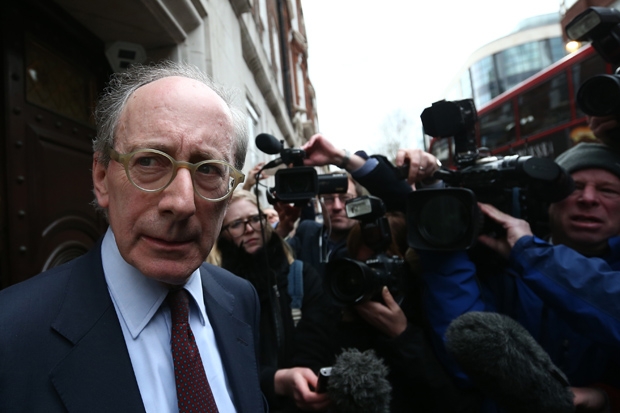Last year, I had an exchange with Hugo Rifkind on Twitter in which I bet him dinner at Clarke’s that his father would stand down before the next election. My reasoning was that, at the age of 68, his dad wouldn’t want to serve another five years in the Commons and would be happier in the Lords. I hadn’t anticipated he would depart as a result of a cash-for-access scandal.
I’ve always rather fancied running in Kensington myself. Rifkind has a majority of 8,616, which makes it a safe seat, and it’s only a 15-minute cycle ride from my house. But I’m not going to throw my hat into the ring because I still have numerous responsibilities in connection with the three schools I’ve helped set up. Indeed, my group is consulting about setting up a fourth in Kensington. I don’t think I’d be able to discharge those responsibilities and do a good job as a Member of Parliament.
I also find that the current censoriousness over MPs earning a bit of extra money is off-putting. Ed Miliband has already said that he intends to ban them from taking second jobs if Labour wins in May, and he may well succeed in bouncing David Cameron into making a similar commitment. It’s all very well for them to get up on their high horses — as leader of the opposition, Miliband is paid £132,387, while Cameron’s salary is £142,500 — but what about those poor backbenchers earning £67,060?
Rifkind expressed this badly when he said that, as a professional, he was ‘entitled’ to a standard of living that an MP’s basic salary couldn’t provide, but I agree with his point. If we expect men of Rifkind’s calibre to serve in the House of Commons it’s unrealistic to insist that they earn no more than £67,000. If Rifkind had eschewed the opportunity to run for Parliament in 1974 and pursued a full-time career in the law, he’d be earning hundreds of thousands of pounds a year. He’d also have a much fatter pension. The truth is, he’s sacrificed a great deal in order to be an MP, even with the odd consultancy or two.
I know plenty of good MPs who are planning to stand down, either in May or at the end of the next Parliament, because they’re worried about not being able to earn enough money to support themselves and their families in the degree of comfort they’d like. And that’s with the current rules in place. If we make it harder for MPs to supplement their incomes, we’ll see an exodus in 2020. Politics will once again become a rich man’s game, as it was before MPs first started to be paid in 1911.
Defenders of tightening up the rules argue that it will be a good thing if adventurers interested in earning more than £67,000 are put off, because people should want to be MPs out of a sense of public duty. But do we really want to be represented by a bunch of self-denying prigs? The best MPs tend to be motivated by a mixture of things — a lust for glory as well as a sense of patriotism, a yearning for recognition and a desire to serve. Think of Winston Churchill. Would he have remained an MP long enough to save western civilisation if he’d been told from the outset that he couldn’t write any books or newspaper articles? Doubtful.
The other danger of imposing an outright ban on MPs’ extracurricular activities is that they’ll figure out dishonest ways of earning money. According to World Audit, the not-for-profit that carries out an annual corruption survey of 150 nation states, Britain is the 12th least corrupt country in the world. I wonder how long that would remain true if we made it illegal for MPs to take second jobs? Some will argue that plenty of MPs are already up to their necks in it and they’ll point to Malcolm Rifkind and Jack Straw as examples. But if you think what they’ve been doing is sleazy, take a look at France’s politicians. Next to them, Rifkind and Straw are choirboys.
As I said earlier, all this sanctimony would be acceptable if it were to be accompanied by a proposal to double MPs’ wages, but it isn’t and nor is it likely to be. The public just wouldn’t wear it. So let’s just leave things as they are. Even with cash for access, we’re still the 12th least corrupt country in the world and that’s good enough.







Comments